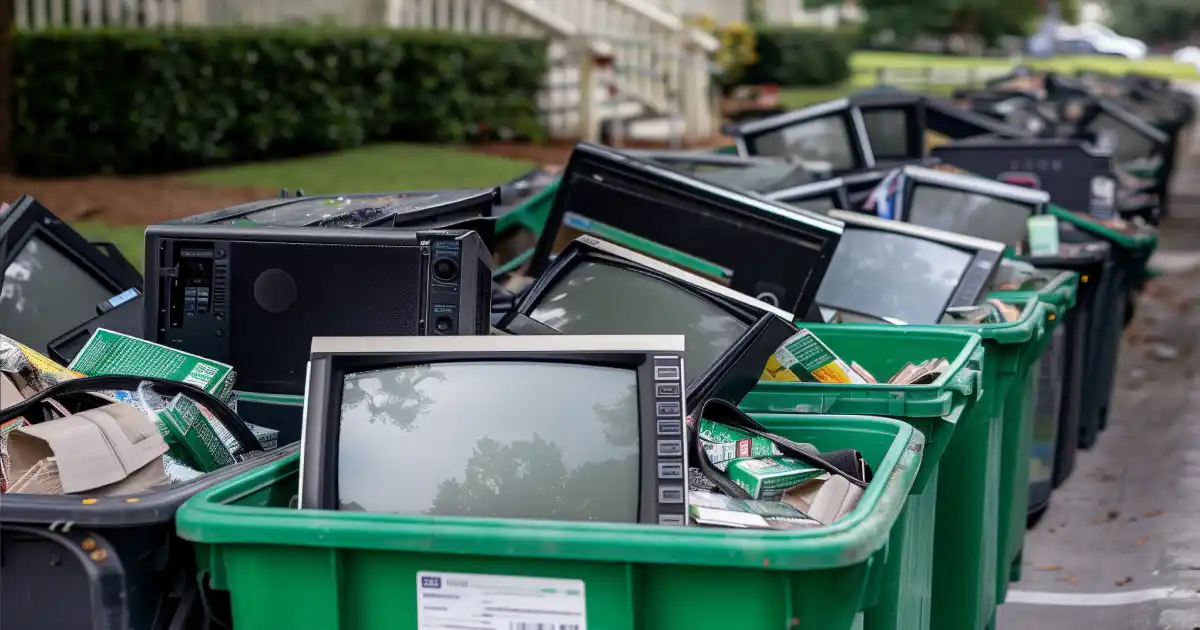The Dangers of Improper E-Waste Disposal

In today’s digital age, technology evolves rapidly, and with every upgrade, old devices often end up discarded. From smartphones and laptops to printers and televisions, electronic waste—better known as e-waste—has become one of the fastest-growing waste streams worldwide. While it may be tempting to toss an old device in the trash, improper e-waste disposal poses serious dangers to both the environment and human health. Understanding these risks is the first step in encouraging safe and responsible recycling practices.
What is E-Waste?
E-waste refers to any discarded electronic device or component, including batteries, circuit boards, wires, and screens. Unlike general household trash, electronics are made up of complex materials such as plastics, metals, and glass—many of which can be toxic if not handled properly. Items like computers and cell phones may also contain hazardous substances, including lead, cadmium, and mercury. When disposed of irresponsibly, these toxins can cause long-term environmental harm and health issues.
Environmental Risks of Improper Disposal
- Soil Contamination
When e-waste is dumped in landfills, toxic materials can seep into the soil over time. Lead and mercury, in particular, are notorious for contaminating soil and groundwater. This contamination can make its way into crops, posing risks to the food chain and human consumption.
- Air Pollution
In many parts of the world, e-waste is incinerated as a method of disposal. Burning plastics and metals releases harmful dioxins and other toxic fumes into the atmosphere. These pollutants not only degrade air quality but also contribute to respiratory illnesses in nearby communities.
- Water Pollution
Hazardous chemicals from e-waste can leach into water systems, affecting rivers, lakes, and oceans. Heavy metals like cadmium and arsenic can poison aquatic ecosystems, endangering marine life and making water unsafe for human use.
Health Risks from E-Waste
Improper e-waste disposal doesn’t just affect the environment—it directly threatens human health. Many electronic components contain toxic elements that can cause serious illnesses when humans are exposed to them.
- Lead Exposure: Can lead to developmental issues in children, kidney damage, and nervous system disorders.
- Mercury Exposure: Damages the brain and kidneys, and can impair fetal development during pregnancy.
- Cadmium Exposure: Linked to lung damage and cancer risk.
Workers in informal recycling sectors, where electronics are dismantled without protective gear, face the greatest health dangers. However, toxins released into the environment ultimately affect entire communities.
Economic Consequences of E-Waste Mismanagement
Beyond the environmental and health risks, failing to recycle e-waste responsibly is also a huge economic loss. Many electronics contain valuable metals such as gold, silver, and copper. When devices are improperly discarded, these materials are wasted instead of being recovered and reused. Recycling e-waste responsibly supports the circular economy, reduces the demand for new mining, and saves resources.
How to Prevent Improper E-Waste Disposal
- Use Certified E-Waste Recycling Services
Partnering with certified recyclers ensures that devices are dismantled safely and valuable materials are reclaimed responsibly.
- Donate or Reuse Electronics
If an old device is still functional, donating it to schools, nonprofits, or community organizations can extend its lifespan and reduce waste.
- Follow Local E-Waste Regulations
Many cities and states have established e-waste collection programs. Taking advantage of these initiatives helps keep electronics out of landfills.
Final Thoughts
The dangers of improper e-waste disposal are far-reaching, impacting the environment, human health, and the economy. As consumers, businesses, and communities, we all share responsibility in ensuring that electronics are disposed of safely and sustainably. By choosing certified recycling services and promoting responsible e-waste management, we can protect our planet for future generations.
This post was written by Steven Elia Co-Founder and Recycling Director at eCycle Florida. eCycle Florida is a R2 Certified electronics recycling company in the state of Florida. Our processes and procedures are dedicated to the proper destruction and recycling of your electronics. eCycle Florida is your go-to for commercial e waste.


